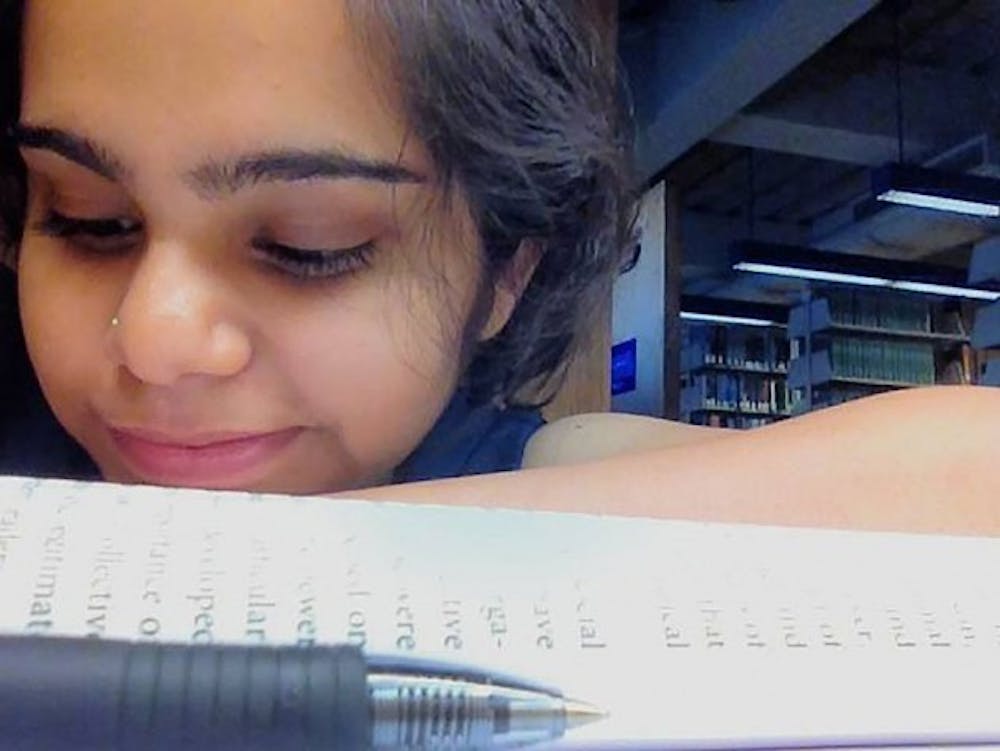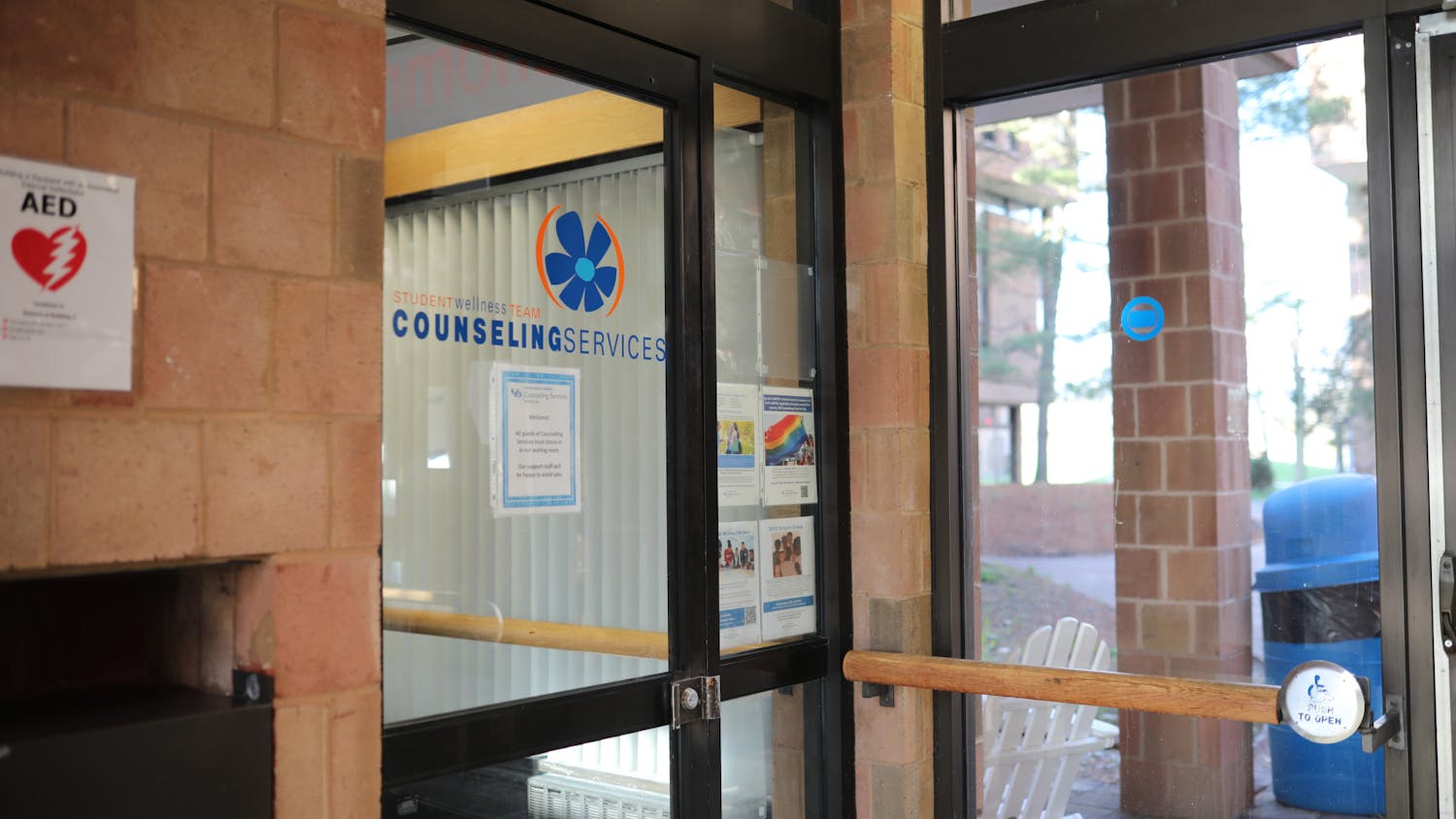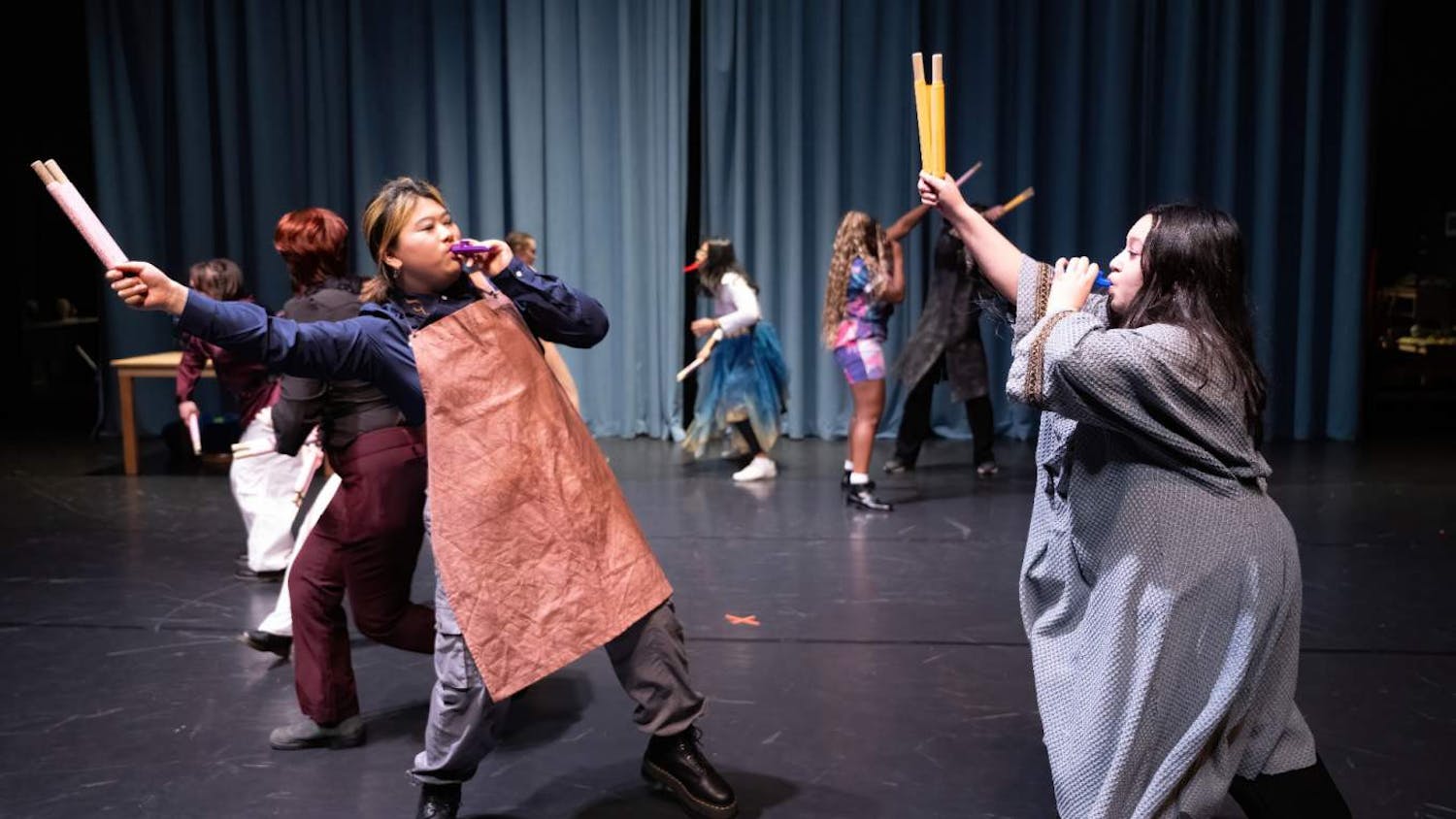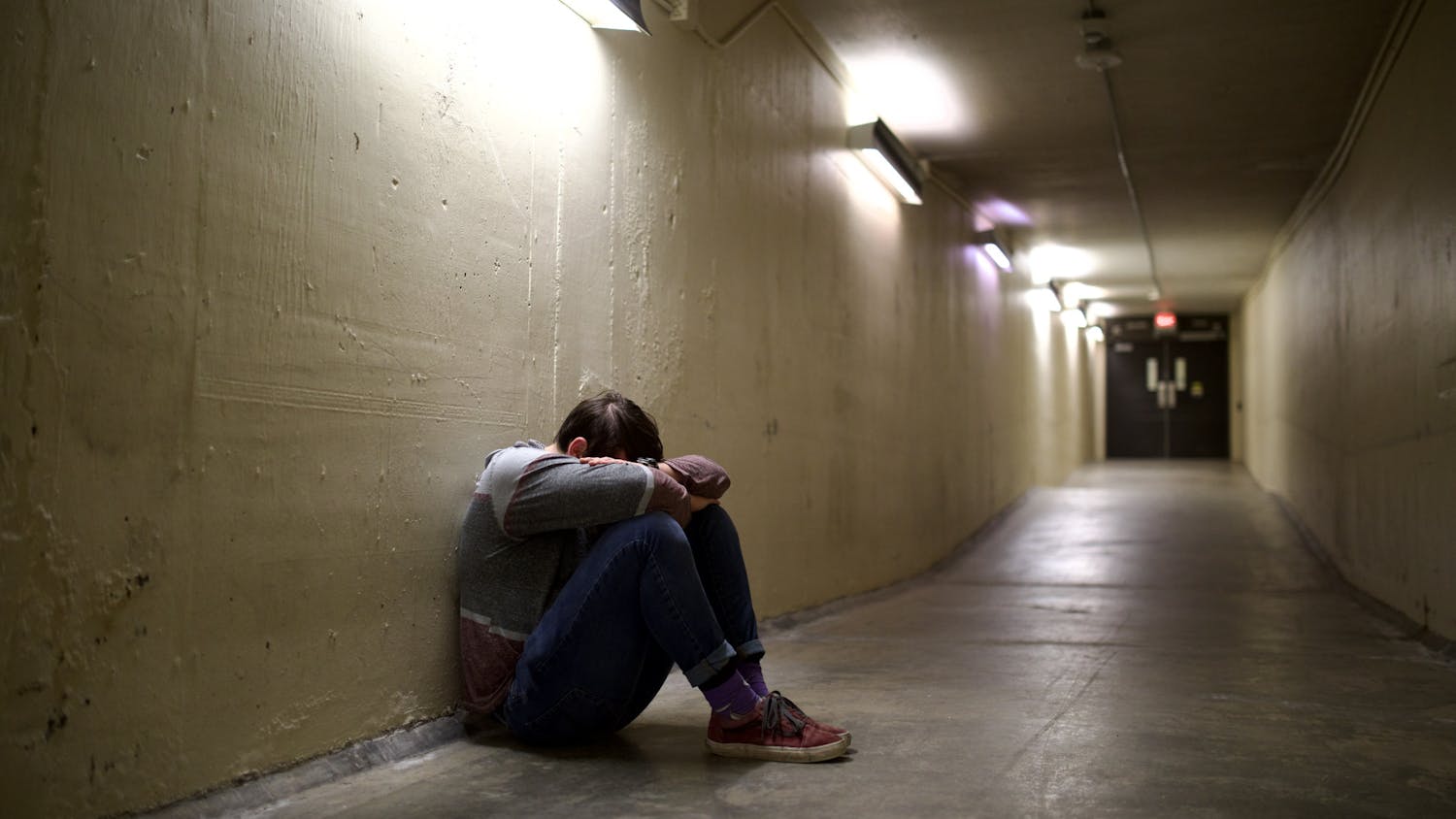Athira Unni still remembers sitting in her fifth grade classroom. It was on the second floor. It had windows on two sides. She would watch the rainfall during monsoons. Her school sat so close to the water that she could see the ocean from a window in the library.
She still remembers the heavy wooden desks, creaky floors and large benches she and her classmates sat on. And she still remembers a story her teacher read to her class in her native India.
It was a folktale about a royal adviser who relentlessly told people, “Everything happens for our own good.”
It’s a phrase that has guided Unni for most of her life.
No matter what happened to the king or the royal family, the adviser always told them that it was for their own good. Even when the king died, he was unwavering in his commitment to this belief and tells the prince that his father’s death was for his own good. Years later, when the adviser dies, the phrase is inscribed on his tombstone.
It was the first time the aspiring writer realized words can “live after you do.” The phrase has also shaped her perspective on life.
“It’s kept me from second guessing myself by saying, this is not determining your life as much as everything else is or by saying, everything determines your life together. You don’t let one thing [get you down] on life,” said Unni, a senior English and sociology major.
Unni has been studying at UB for three years and returns to her home in Calicut, India each summer. She’s part of UB’s large international student population, which makes up 17 percent of the total student body. Her decision to come to the United States wasn’t easy, and the decision to study English isn’t socially acceptable in her culture, she said. Regardless of what challenge she faces, Unni always believes that everything is happening for her own good.
Although Unni says coming to America has been a difficult, shocking, rewarding and challenging experience that often made her question if her time in the United States was for her own benefit, her greatest challenge was not only deciding what to do with her life, but convincing her parents to allow her to pursue her dreams.
After graduating from high school in 2011, Unni didn’t know what she wanted to do. She was good at every subject and received a 95 or higher on all of her exams.
Though she hates math, both her parents got degrees in mathematics and her father went on to get an additional degree in engineering. They always saw her following in their footsteps and pursuing a degree in sciences or mathematics, which she says most parents in India do. Everyone in her family went into a career in business or science.
But her life long love of reading and writing made her want to pursue a degree in English.
***
Unni began writing at a young age and kept a journal of all the places she traveled with her family. She filled it with meticulous details like what they ate, what they saw and even the hours of operation for some of the stores and places she went to. The journal was an early gateway to more disciplined writing.
Her father is an electrical engineer on a cargo ship, and spends four months on the ship before returning home for four months and then leaving again. When she was young, Unni and her mother lived with her father in a cabin on one of the ships and traveled the world.
She remembers her mother waking her up one morning to show her the Statue of Liberty as the ship motored by on its way to a harbor in New York. And though she doesn’t remember it all, she’s been to most of the major ports and harbors in the world.
When they were back home in Calicut, she and her family would drive around to various sites and spent a lot of time on vacation.
Unni’s mother, Chandra Unni, remembers her daughter noting minute details – down to how many kilometers they traveled – during the family’s journeys.
Vacation and life experiences eventually became a quintessential aspect of Unni’s writing. Unni said she knew she wanted to be a writer in the seventh grade.
But it was in the sixth grade she wrote her first poem, “Craft,” which focused on painting and drawing. It was the spark that set Unni into excelling in creative writing.
In 10th grade, Unni was a Kerala – a state in India – champion for essay writing. Her passion, however, was still poetry.
Writing didn’t come without tribulations. Unni recalls an instance in the 10th grade when a teacher gave her “horrible remarks” on a piece called “Demons of Misfortune,” which the writer considered among her best.
“She was like, ‘The title completely ruins it and you should stick to writing essays. Don’t write poetry.’ That completely broke my confidence … and I stopped [writing] poetry for the next two years.”
Unni remembers crying as she walked along the side of a road on her way home that day.
With her confidence in creative writing and poetry shaken, her decision of what to do after high school became even more difficult. Unni slowly rebuilt her confidence in writing and posted poetry to her blog and decided to pursue a degree in English. Her mother was supportive, but her father and friends were not.
As the first child, Unni says her father often saw her as a son who was set to follow in his footsteps and become an engineer. After graduating from high school, Unni became enrolled in engineering coaching classes to prepare her for exams she needed to pass to get into the a good school. From seven in the morning to four in the afternoon, she and her classmates studied science. It drained her.
She didn’t want to spend four years getting a degree in a field she didn’t want to work. She told her father how unhappy that would make her, and he began to support her decision to study English. Her friends weren’t sold.
“My best friend for 13 years [said], ‘Are you insane? Don’t you think you should get a professional degree? Don’t you think you should do something that will earn you money, give you a place in society?’’ Unni said. “It was hard for me to defy those people who meant a lot to me, but this is what I want to do. If this is happening for my own good and coming to America is what I have to do to learn English, then that’s what I’m going to do.”
Once she decided to come to the United States, she applied to three schools: the University of Michigan, the University of North Carolina and the University at Buffalo.
It was UB that accepted her and awarded her annual an $6,000 scholarship.
Initially, she found the rejections from the University of Michigan and University of North Carolina crushing, but at the same time there was comfort in not leaving home. But once she was accepted to UB with a scholarship, her parents told her she had to go.
“Most of our friends and relatives criticized us as if we did something strange,” Chandra said in email. “I was always on her side because I knew she is very determined and hard working.”
Unni was excited to get a scholarship from a school that had a “surprisingly good” English department, she said. Her parents thought she’d be able to identify with UB’s number of international students.
***
When she first arrived in America, Unni thought it was scary. She spent a week in New York City surrounded by tall people and buildings that made her feel small “like a Lilliput” – a race of 6-inch-tall people from the novel Gulliver’s Travels.
The scale of everything around her was immense and filled with things she wasn’t accustomed to. She was surprised by the diversity of the people around her. Small subtle differences stuck out the most. She was amazed at the amount of profanity people used and the courtesy of people opening doors and asking how you are, some of which she found fake.
At UB, her biggest fear was that she wouldn’t fit in. She was worried that the “invisible wall” of diverse experiences and language would isolate her.
She felt lost and homesick during her first semester and wondered if her decision to come to UB was truly for her ‘own good.’
Eventually, she found value in her independence and was determined to take advantage of her time at UB. She quickly made friends on campus and her concerns dissipated.
Sonika Singh, a senior electrical engineering major and mathematics minor, experienced similar difficulties dealing with homesickness and making friends.
Singh lived across the hall from Unni freshman year, but came from different parts of India and spoke different languages. As the national language, Singh grew up speaking Hindi and very little English. Unni spoke a little Hindi, but mostly spoke Malayalam, which is only spoken in Kerala and was taught English in a convent school for ten years.
Despite their language barrier and having very different interests, the pair formed a bond.
“That’s when we started to know one another and be there for each other,” said Singh, who is from New Delhi in northern India. “I had a bad experience with friends the first semester I came [to UB] and she was always there for me when all those other people betrayed me or broke my trust. She was always there.”
And though her concerns about being away from home faded, what was on the menu at UB was a big concern.
“I’ll be frank, I didn’t even know what to eat over here,” she said. “I had no idea how to order in a Subway, I had no idea what Starbucks was about. It’s very different. Especially when you’re coming from a third world country where you don’t have a lot of chains of shops where everyone knows what to order and people bring [you the food] prepared.”
She used to joke with her mother she’d be spending four years eating eggs and cheese.
“I was in tears when she told me that she used to be hungry,” Chandra said. Her mother went as far as being conscious to not talk about food when the two chatted on the phone.
“Of course I tried to encourage her by saying that we had to sacrifice something to achieve our aim [and] she wouldn’t complained much because it was her decision to come to UB,” her mother said.
Her friends and family often worried the college party scene – an atmosphere not present in India – and people she met would change her, but Unni was determined to remain the same. She “loves challenge, but hates change.”
But her mother will contend she has changed a lot, noting her daughter has found her independence and voice as an outspoken and politically conscience young adult.
***
As an English major at UB in the advanced honors program, Unni still excels in writing. Regardless of whether it’s a term paper, poem or a close reading, she still receives the same good feedback that she received from most of her teachers in high school. She decided to double major in sociology, which provides her with an expanded outlook on life and gives her broader societal perspective, which has found its way into her poetry.
While at UB, Unni began taking creative writing classes and exploring her poetical “outlet” for her thoughts and emotions. Her poetry used to always begin autobiographically and become something else as she wrote. But now she describes it at as: “A shadow of my thoughts. It’s personal at times, but blatantly social and completely alienated from my life or myself at other times.”
Unni loves to surprise people with her poetry. She can begin a poem with something humorous and lighthearted and then transition into something more serious that reflects on society or something personal. She loves blending those two opposites together and seeing the result.
UB’s creative writing workshops and classes pushed her to explore new facets of poetry, her outlook on life and her global perspective, as well as experiences that she never thought possible.
Recently, she wrote her favorite and most personal poem to date entitled, “Language in Transit.” The result was something she didn’t expect. When her parents read it, they cried.
“That’s one of the first times my parents have emotionally reacted to my poetry,” Unni said. “A lot of the time my mom will tease me and reads my poetry in a funny voice, so I laugh, she laughs, we all laugh. But this time [my poem] had references to her, it had references to our home and it had references to coming here and adjusting to things. And it had references to religion back home, which I never really followed. I was never overly religious. Although I went to temples and stuff, it was more of a ritual with my family that a [religious] devotion … she felt very good that I wrote about all of that.”
***
When she wasn’t busy exploring UB, writing poetry and taking classes, Unni had her work published in NAME Magazine, the English department’s annual literary magazine. She also cofounded UB Lit Club with her friend and fellow English major Anne Mulrooney*, who she met in a creative writing workshop last fall.
Although she walked the stage at graduation in May, Unni will officially graduate from UB this fall. Following, she will return to India to start her career.
She may not always take the road that she’s expected to, but she’ll do so knowing it’s for her own good.
After all, “everything happens for our own good.”
*Anne Mulrooney is an editor for The Spectrum.
email: arts@ubspectrum.com





